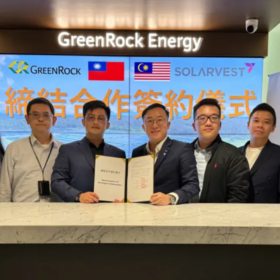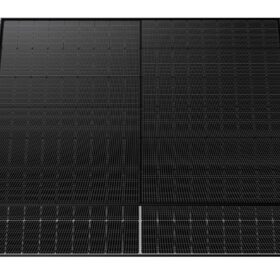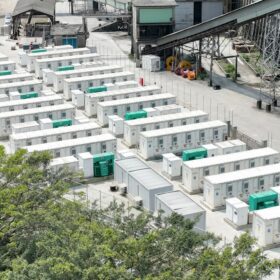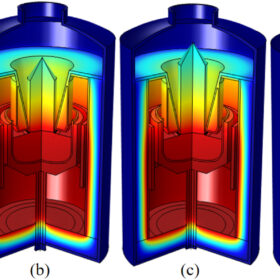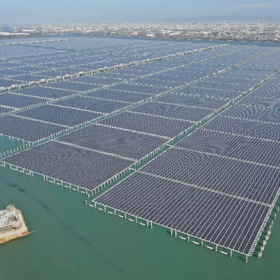TrendForce says 210 mm module shipments surpassed 260 GW in Q1
Market intelligence platform TrendForce says 210 mm n-type technology is “set to spearhead a new industrial revolution.” It expects 210mm modules to account for 78.29% of the large-format module market this year, increasing to 82.51% by 2027.
Google invests in Taiwanese solar developer New Green Power
Google has made a capital investment in Taiwan-based New Green Power, in a deal that grants the US company the rights to procure up to 300 MW of solar assets.
GreenRock, Solarvest to develop 1 GW green energy project in Taiwan, Malaysia
Recognizing Malaysia’s potential and aligning with the government’s goal of reaching 40% green energy by 2035, GreenRock Energy has become the first Taiwanese company to participate in the country’s green energy projects.
Xing Mobility releases high-voltage battery
Xing Mobility has released its Immersi XE50 battery system designed for both renewable energy applications and commercial and residential uses. The Taiwan-based company says its solution is capable of reaching up to 1500V.
Winaico presents bifacial 435 W TOPCon solar modules with 22.30% efficiency
Taiwanese manufacturer Winaico said its newest bifacial, n-type, glass-glass TOPCon compact modules are available in a 435 W aluminum-framed version, and a 430 W full-black version. The module efficiency is up to 22.30%.
Winaico launches new series of n-type TOPCon solar modules
Taiwanese manufacturer Winaico says its new 430 W glass-glass tunnel oxide passivated contact (TOPCon) modules have a power conversion efficiency of 22.02%.
Nhoa Energy commissions battery storage project in Taiwan
Nhoa Energy, an Italian developer, has commissioned a battery energy storage project for Taiwan Cement Group in Yilan county, Taiwan, with a capacity exceeding 120 MWh.
Adjusting oxygen distribution in Czochralski silicon crystal growth
Researchers in Taiwan have discovered that in polysilicon production the crucible angular speed affects the oxygen concentration near the crucible wall, which in turn affects the wafers’ mechanical and electrical properties. They simulated a Czochralski process for an ingot with a diameter of 200 mm diameter and a length of 700 mm.
Ciel & Terre, Hexa Renewables round off 440 MW floating PV array
Ciel & Terre and Hexa Renewables have completed a 192.3 MW extension of a 440 MW floating PV array in Taiwan. The extension includes patented technology featuring concrete pillars and an H-beam system as an anchoring design, in order to address near-shore environmental challenges.
Taiwanese utility sets up renewables bidding platform
Taipower has developed a new platform to sell renewable energy to small- and medium-sized businesses. The power utility plans to sell 50 GWh of clean energy by the end of this year.


